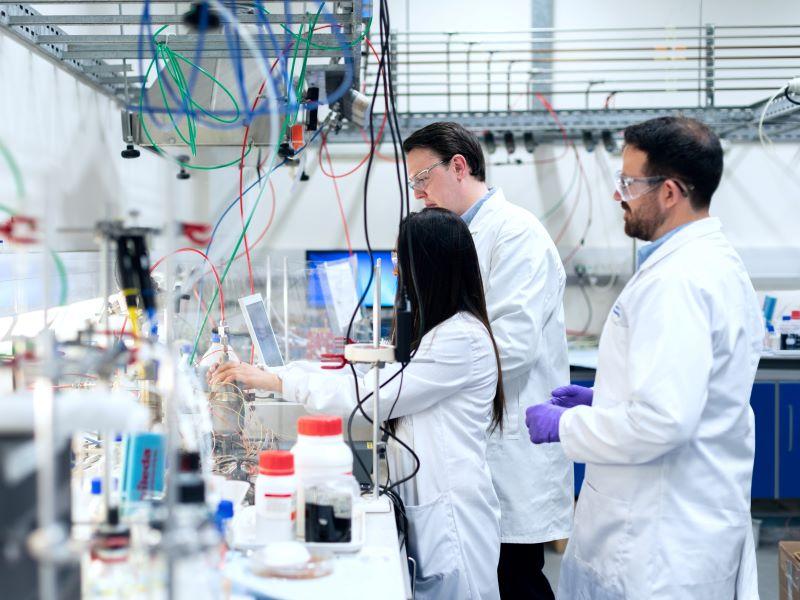
How open knowledge strengthens democracies

Multiple crises are afflicting young and mature democracies alike. Extreme social polarisation, mistrust of authority and information (from media, scientific communities, governments themselves), the rise of populism, drastically deepening socio-economic inequality, and greater alienation and disenfranchisement of social groups are among the serious challenges that global society is confronting.
One of the chief threats to democracy today is a form of populism that seeks to create powerful totalitarian narratives, silence alternative perspectives and assert its dominance via force rather than reason or cooperation.
Universities have a vital role to play in constructing more robust societies that are better able to resolve complex social, economic and political challenges. They can do this if they take two aspects into consideration: their structure as pluralistic institutions that protect and privilege the free exchange of ideas, and their turn towards becoming open knowledge institutions. This entails rethinking the university not as a gatekeeper of knowledge but an organisation that coordinates a complex network of individuals from a wide range of social spheres.
- Resource collection: Higher education’s role in upholding democracy
- What can universities do to protect Russian and Ukrainian academics fighting for truth?
- Spotlight guide: Why knowledge exchange is important for universities
Protecting diversity of opinion
Universities are spaces where plurality and diversity of opinion have always been respected and protected. Debates are resolved peacefully and respectfully, and divergent perspectives are protected. Universities are spaces where critical viewpoints can be discussed without fear of reprisal or repression. In countries with a history of suppression of free speech in the public sphere, the value of this protection should not be underestimated. This protected critical sphere is vital to the healthy functioning of democracies. The university tradition of tolerance and plurality is something that must be inculcated into every student that passes through and every person the university touches.
In Latin America, public universities have an important nation-building role. Since their foundation, they have provided large numbers of senior civil servants, especially judiciary, as well as serving as important policymaking and deliberative bodies that offer not only an important critical function but a constructive one, too. The health and strength of young democracies is intimately tied to the constructive and critical functions of their flagship higher education institutions.
The traditional configuration of the university is diverse and tolerant with regards to its own community, but reticent to engage with those outside of it. Access to these privileged spaces tends to be more open to the socio-economically privileged. In part, this distancing can feed the rise of populist sentiment and rhetoric, as we have witnessed in recent years in Brazil. Diversifying the student and staff bodies and extending the reach of higher education is essential to strengthening civil society and making democracy more inclusive.
Universities and scientific institutions have special organisational characteristics that have the potential to greatly strengthen democratic norms. However, their nature as closed systems is often limiting.
Open knowledge institutions
Open science means much more than just free access to journal articles. The process of transitioning to an open knowledge institution requires commitment to opening the institution to society during planning, processes, publishing and evaluation. The principle of openness to society must be embraced to ensure that universities and their values permeate society more widely, and the university can react and listen to the society that funds and sustains it.
To do this, public universities can:
- Establish consultive councils made up of a wide range of internal and external stakeholders who can articulate societal demands. This should include civil society representatives, representatives of the public sector, community leaders and elected officials. The job of a consultive council is to articulate societal demands and to discuss and set ambitions for the knowledge network that the university supports. They are consulted in the process of setting strategic plans and parameters for institutional and staff evaluation. This ensures institutions are better able to respond directly to societal concerns.
- Set clear targets for student body diversity during admissions, and track graduate outcomes into the workplace. This will help in monitoring how effective universities are as motors of inequality reduction, and hopefully improve the diversification of political, judicial, social and private-sector leadership.
- Set hiring targets for more diverse academic staff and senior management to ensure that a greater diversity of perspectives is present to influence public policy decisions.
- Explicitly value knowledge from marginalised and underrepresented groups in knowledge creation and dissemination to widen the number of voices heard among policymaking communities.
- Find mechanisms to measure and reward policy impact, so that it is as highly valued as academic or economic impact and becomes a more central part of career progression and recognition.
- Reward research that engages a wider spectrum of knowledge creators, in a wider variety of media. Research created with the general public, public authorities and non-governmental organisations helps to broaden the network of knowledge production, and as a result includes more actors in policymaking and influence.
Justin Axel-Berg is a higher education policy researcher at the University of São Paulo in Brazil.
If you would like advice and insight from academics and university staff delivered direct to your inbox each week, sign up for the Campus newsletter.


